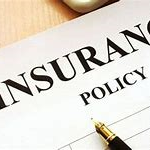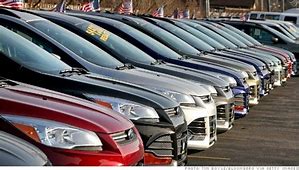Diminution in Value – Total Loss – Repairs to your Vehicle

What is Diminution in Value? Can I recover for Diminution in Value when I am in a car accident?
Diminution in Value refers to any measurable decrease in value for a vehicle after repairs to the vehicle have been made. In other words, when your car is in a collision and then repaired by the body shop, Diminution in Value refers to any decrease in the car’s value due to the collision. (For further reading on the Definition of Diminution in Value see https://www.merriam-webster.com/legal/diminution%20in%20value) With today’s technology and services such as CarFax, a potential buyer can check the vehicle’s collision history. (www.carfax.com)
 This does not mean that you can automatically recover for Diminution in Value when you are in a car accident. There are limitations and issues to consider.
This does not mean that you can automatically recover for Diminution in Value when you are in a car accident. There are limitations and issues to consider.
First Party Limitations – If you are going through your own insurance collision coverage, your insurance carrier and your policy with your insurance carrier may disclaim Diminution in Value claims. In other words, your contract with your insurance carrier may not allow you to recover from them for the Diminution in Value. If you do not have Collision coverage, you can not recover from your carrier for property damage at all. If your carrier disclaims Diminution in Value, you may get your car fixed from your carrier and then recover the Diminution in Value from the third party carrier or at fault driver’s insurance. Note that even if your policy allows you to recover Diminution in Value from your insurance carrier, there may be certain limitations for making this claim, such as you will have to pay the costs of the expert, the arbitration to decide the Diminution in Value, or even that you will have to pay the insurance carrier’s costs if you lose.

Third Party Limitations – If you decide to go through the at fault driver’s insurance for the Diminution in Value claim, there are also some things that you should consider. The insurance carrier may make you a very low offer or no offer at all and then you would have to litigate the claim. You may need to hire a consultant or appraiser to support your claim for Diminution in Value. Or if the other driver has a minimal policy, you may be faced with a “limits” issue, meaning the other driver’s limits are not enough to pay for your claim. If you feel that you have a claim for Diminution in Value, you should consult with an attorney to evaluate this claim before speaking with the insurance carrier!!
What is my car worth?
 Your insurance carrier or the third party insurance carrier will owe you the value of your car in the event that it is totaled. This is the replacement value of the vehicle. There is some difference in price between how much you would pay a dealership for the vehicle and how much you would pay a private party for the vehicle. The amount you are owed is something in between. If your car is totaled, the insurance carrier owes you for tax, licensing fees, and all charges to take possession of the vehicle, but they do not owe you for registration. You can cash out your registration with the AZ Division of Motor Vehicles (DMV – https://azdot.gov/motor-vehicle),, or you can roll it over into the price of your new vehicle registration. They may not owe you for aftermarket equipment that can be easily removed from the vehicle or an extended warranty plan that can be cashed out with the warranty company.
Your insurance carrier or the third party insurance carrier will owe you the value of your car in the event that it is totaled. This is the replacement value of the vehicle. There is some difference in price between how much you would pay a dealership for the vehicle and how much you would pay a private party for the vehicle. The amount you are owed is something in between. If your car is totaled, the insurance carrier owes you for tax, licensing fees, and all charges to take possession of the vehicle, but they do not owe you for registration. You can cash out your registration with the AZ Division of Motor Vehicles (DMV – https://azdot.gov/motor-vehicle),, or you can roll it over into the price of your new vehicle registration. They may not owe you for aftermarket equipment that can be easily removed from the vehicle or an extended warranty plan that can be cashed out with the warranty company.
 In order to get a rough idea of the value of your vehicle, you can start with Kelly Blue Book. (KBB.com) But do not argue to the insurance carrier the value that KBB suggests, because they are a guide only and not a listing of comparable vehicles. When dealing with the insurance carrier, you should point out recent service and upgrades to your vehicle. You should point out the excellent condition of your vehicle. Note that unrelated damage and wear and tear will be considered in your vehicle’s valuation. You should also list any options and option packages. Be sure to list window tint, upgraded stereo, wheels, etc., because these options are hard to check for and sometimes overlooked. If the insurance carrier does not make a fair offer, ask to see their valuation report. If they are not considering comparable vehicles, you can do your own researching similar vehicles for sale and provide this information to the insurance carrier. Auto Trader(www.autotrader.com) is a good place to start. There is typically not much to negotiate because a car’s value is not too complicated to determine. Many insurance carriers pay fair value for your car when it is totaled, but if you have any questions, you should talk to a lawyer as soon as possible after the collision and before speaking with the insurance carrier.
In order to get a rough idea of the value of your vehicle, you can start with Kelly Blue Book. (KBB.com) But do not argue to the insurance carrier the value that KBB suggests, because they are a guide only and not a listing of comparable vehicles. When dealing with the insurance carrier, you should point out recent service and upgrades to your vehicle. You should point out the excellent condition of your vehicle. Note that unrelated damage and wear and tear will be considered in your vehicle’s valuation. You should also list any options and option packages. Be sure to list window tint, upgraded stereo, wheels, etc., because these options are hard to check for and sometimes overlooked. If the insurance carrier does not make a fair offer, ask to see their valuation report. If they are not considering comparable vehicles, you can do your own researching similar vehicles for sale and provide this information to the insurance carrier. Auto Trader(www.autotrader.com) is a good place to start. There is typically not much to negotiate because a car’s value is not too complicated to determine. Many insurance carriers pay fair value for your car when it is totaled, but if you have any questions, you should talk to a lawyer as soon as possible after the collision and before speaking with the insurance carrier.
What should I know when getting my car fixed after a collision?
 Under Arizona law, you have the right to have your car repaired at any body shop you choose. If you do not know a body shop, you can ask the dealership where you bought the car. You should compare reputation and warranty of the body shop before taking your car in. You do not have to take the car to the body shop that the insurance carrier recommends or where your car was towed. Many times those are the cheaper places. Many times the insurance carrier recommends the cheaper places or places that use used or non OEM parts. Although the carrier may offer an additional warranty or some incentive if you use their preferred shop, you should think twice before you use the body shop recommended by the insurance carrier. When you pick up your car you should make sure that everything is perfect. Take it for a test drive and examine all work carefully. You may want to also check the steering and alignment and the way that it handles. Finally, when you are in a collision that is not your fault, remember that the insurance carrier owes you for loss of use or a rental from the day of the accident.
Under Arizona law, you have the right to have your car repaired at any body shop you choose. If you do not know a body shop, you can ask the dealership where you bought the car. You should compare reputation and warranty of the body shop before taking your car in. You do not have to take the car to the body shop that the insurance carrier recommends or where your car was towed. Many times those are the cheaper places. Many times the insurance carrier recommends the cheaper places or places that use used or non OEM parts. Although the carrier may offer an additional warranty or some incentive if you use their preferred shop, you should think twice before you use the body shop recommended by the insurance carrier. When you pick up your car you should make sure that everything is perfect. Take it for a test drive and examine all work carefully. You may want to also check the steering and alignment and the way that it handles. Finally, when you are in a collision that is not your fault, remember that the insurance carrier owes you for loss of use or a rental from the day of the accident.
 The intricacies of property damage can be difficult and confusing at times. Consult with a car accident attorney right away when you are in a car accident!
The intricacies of property damage can be difficult and confusing at times. Consult with a car accident attorney right away when you are in a car accident!
This information is intended to be a guide only for Arizona drivers that have been in a car accident. You should always consult with an attorney when you are in a car accident.

